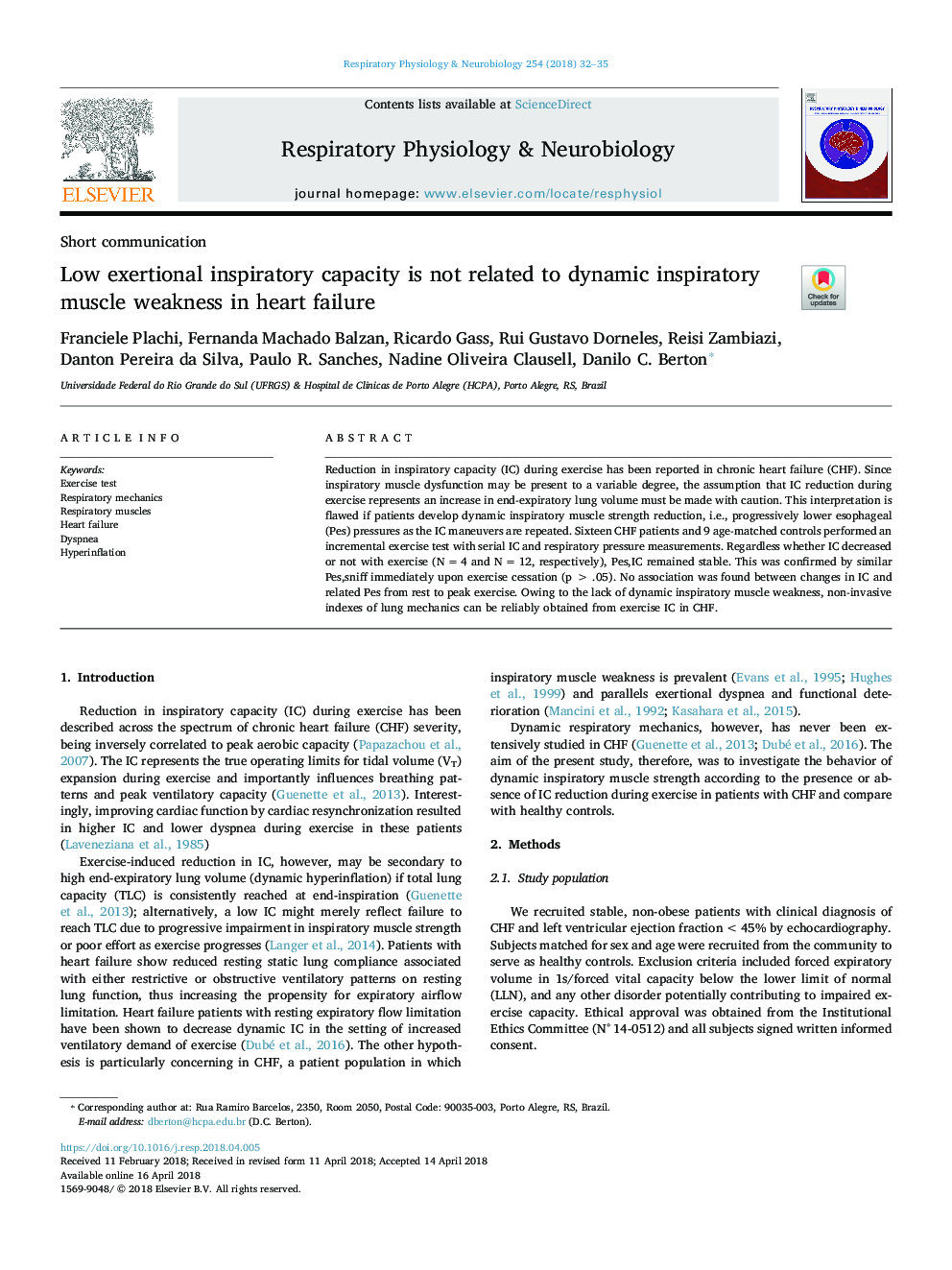| Article ID | Journal | Published Year | Pages | File Type |
|---|---|---|---|---|
| 8650787 | Respiratory Physiology & Neurobiology | 2018 | 4 Pages |
Abstract
Reduction in inspiratory capacity (IC) during exercise has been reported in chronic heart failure (CHF). Since inspiratory muscle dysfunction may be present to a variable degree, the assumption that IC reduction during exercise represents an increase in end-expiratory lung volume must be made with caution. This interpretation is flawed if patients develop dynamic inspiratory muscle strength reduction, i.e., progressively lower esophageal (Pes) pressures as the IC maneuvers are repeated. Sixteen CHF patients and 9 age-matched controls performed an incremental exercise test with serial IC and respiratory pressure measurements. Regardless whether IC decreased or not with exercise (Nâ¯=â¯4 and Nâ¯=â¯12, respectively), Pes,IC remained stable. This was confirmed by similar Pes,sniff immediately upon exercise cessation (pâ¯>â¯.05). No association was found between changes in IC and related Pes from rest to peak exercise. Owing to the lack of dynamic inspiratory muscle weakness, non-invasive indexes of lung mechanics can be reliably obtained from exercise IC in CHF.
Related Topics
Life Sciences
Biochemistry, Genetics and Molecular Biology
Physiology
Authors
Franciele Plachi, Fernanda Machado Balzan, Ricardo Gass, Rui Gustavo Dorneles, Reisi Zambiazi, Danton Pereira da Silva, Paulo R. Sanches, Nadine Oliveira Clausell, Danilo C. Berton,
